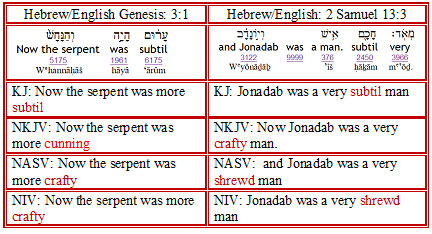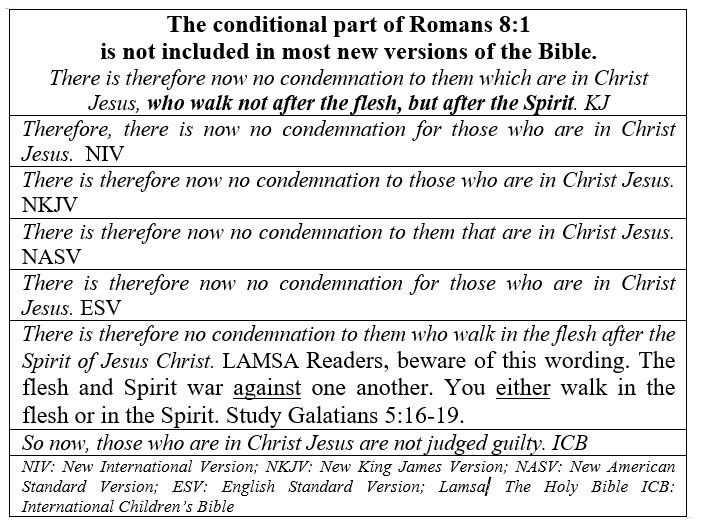 February is a month that many associate with the 14th, Valentine’s Day. It’s when people send cards, buy candy and flowers, and some even talk about a love associated with “Cupid.”
February is a month that many associate with the 14th, Valentine’s Day. It’s when people send cards, buy candy and flowers, and some even talk about a love associated with “Cupid.”
We get the name Cupid from Roman mythology which means to desire. In  Greek mythology, Cupid is the child of the goddess of love, Venus; also known as Eros.
Greek mythology, Cupid is the child of the goddess of love, Venus; also known as Eros.
Before we get further into this study, consider the following words. Can you explain them to others: eros vs agape; propitiation vs atonement; lust vs love? Write what you feel each of the foregoing mean before reading further and then do the same after studying this message.
Surprisingly, even though there are instances of eros (love) displayed in the Bible, the Greek word for eros is found nowhere in the text; however, its selfish and destructive emotions were recorded in our Bible and are alive today as much as they have been in the past. It’s special when someone tells you that he loves you; whether it’s a friend, relative, or even someone you hardly know. However, what does that love mean?
Amnon’s love exemplifies the ugliness eros can produce.
You may be familiar with the hideous, disgusting eros (love) of Amnon, a son of (King) David, for his half-sister Tamar. Amnon’s lustful passion for Tamar is described in Second Samuel 13:2 as so great that he … fell sick for his sister …. Unfortunately, Cupid’s “love arranger” was close by, a friend of Amnon’s who is described in verse three as … a very subtil* man. (See a study below on the word subtil). Jonadab told Amnon: … Lay thee down on thy bed, and make thyself sick: and when thy father cometh to see thee, say unto him, I pray thee, let my sister Tamar come, and give me meat, and dress the meat in my sight, that I may see it, and eat it at her hand. 2 Samuel 13:5
*The adjective used to succinctly describe Jonadab’s evil character, subtil, is vital as it cross references to identify the character of Jonadab with that of the serpent (Satan, Lucifer, the Devil) introduced in the book of Genesis who also deceived Eve: Now the serpent was more subtil than any beast of the field … I urge you to study these two references, Genesis 3:1 and 2 Samuel 13:3. See the table below.

When you compare these two verses, you may find that the authors of the new versions not only replace the word subtil, but they usually record different adjectives in each of these two Scriptures, even though the two different underlying Hebrew words are interpreted the same in both. Think about it. Why does God state that the serpent was subtil—this same one who is also identified as Lucifer, the Devil, the dragon, and several other synonyms throughout the Old and New Testaments? And then He also describes Jonadab as being subtil! It has to do with contextual translations: their characters were the same.
What was the result of Jonadab’s suggestive, deceptive act? Innocent Tamar was asked by her father, David, to go to her brother’s house and prepare a meal for him. This she innocently did. As she was preparing the food, Amnon said to her: Tamar, Bring the meat into the chamber, that I may eat of thine hand. 13:10 Tamar did so, at which time, Amnon grabbed her, saying: Come lie with me … Tamar, a virgin, firmly said: … Nay, my brother, do not force me; for no such things ought to be done in Israel … Howbeit he would not hearken unto her voice; but, being stronger than she, forced her and lay with her. 13:12, 14 If that were not tragic enough Amnon’s eros turned to yet another horrific, hateful action: Then he called his servant … and said, Put now this woman out from me, and bolt the door after her. 13:17 Additionally, unlike today, in the days of Tamar, losing one’s virginity before marriage was catastrophic for a woman.
Sadly, varying manifestations of eros are alive and active even today but often with the consent of both parties to have sexual intimacy outside the bonds of a covenant marriage. This often leads to an unwanted pregnancy and the aborting of the child’s life. Likewise, the wickedness of eros permeates thousands of marriages (when lust enters), sending spouses involved in affairs to the courts asking for a divorce, or as Amnon demanded: Put now this woman [man] out from me. Putting away a covenant spouse is something God hates: For the LORD, the God of Israel, saith that he hateth putting away: for one covereth violence with his garment, saith the LORD of hosts: therefore take heed to your spirit, that ye deal not treacherously. Malachi 2:16
So what is love?
Some may have heard the lyrics of a song from the movie Fiddler on the Roof wherein husband Tevye asks his wife Golde whether she loves him after a quarter century of marriage. She responds:
For twenty-five years I’ve washed your clothes
Cooked your meals, cleaned the house
Given you children, milked your cow
She then asks, “If that’s not love, what is?”
However, not every display of love is the love required of a Christian. It is possible for an unbeliever to show love, to know love, and to do acts of love. Consider, for example, that in the Bible, there are more than five hundred recordings of varying forms of the word love (love, loved, lovest, loveth). Yet, in this message, I want to turn to a love many of us Christians talk about, sing about, and pray about. It’s in contrast to the love associated with eros and that explained by Golde. It’s a kind of love found nowhere else in the world than in the Bible. In the New Testament it is based on the Greek word agape which expresses God’s love for us. This is in contrast to many of our expressions of love: “I love my dog,” “I love music,” “I love to play tennis”; and even for some, “I love my husband/wife.”
Is there a message of love in First John 4 that we may have missed?
Study First John 4:7-8. There is some deeply embedded theology in these two verses about love: Beloved, let us love one another: for love is of God; and every one that loveth is born of God, and knoweth God. 8 He that loveth not knoweth not God; for God is love. 1 John 4:7-8
But wait a minute, doesn’t it also seem that these two verses contradict each other? What if I love my husband for 24 years then divorce him because I now love someone else? Do I no longer know God? Perhaps we are missing some vital issues and confusing what God’s love is and how man understands love and/or applies God’s love. Consider a Scripture from what I have often called God’s succinct marriage manual, Ephesians 5:25-33. Focus on the key Scripture, Ephesians 5:25: Husbands, love your wives, even as Christ also loved the church, and gave himself for it.
Jesus is God manifest in the flesh.
Some may misunderstand that Jesus is God manifest in the flesh and thus miss many of the interrelated Scriptures on love. As a review, consider the following:
And without controversy … God was manifest in the flesh [as Jesus Christ on this earth], justified in the Spirit, seen of angels, preached unto the Gentiles, believed on in the world, received up into glory. 1 Timothy 3:16
Behold, a virgin shall be with child, and shall bring forth a son, and they shall call his name Emmanuel, which being interpreted is, God with us. Matthew 1:23
For unto us a child is born, unto us a son is given: and the government shall be upon his shoulder: and his name shall be called Wonderful, Counsellor, The mighty God, The everlasting Father, The Prince of Peace. Isaiah 9:6
Thus, the statement in Ephesians 5:25 that Christ manifested love for the church (the body of believers) by giving Himself for it, lets the reader also know that the aforementioned is an expression of God’s love. This understanding is vital to better understand the statements about God’s love recorded in the fourth chapter of First John. Especially noteworthy is the fact that repeated twice is the statement that God is love as well as the many other times the word love is recorded throughout this chapter.
The simple statement that God is love is repeated twice in Chapter Four. Yet, it is likely one of the most misunderstood but profound, even controversial statements in the Bible. Humans are capable of receiving and giving love; but that love, unlike God’s, can so easily be corrupted, especially when it becomes driven by our selfish and self-centered needs rather than a true expression of love. Many ask from their human understanding of God’s love questions such as:
“If God is a God of love why did he let my child die? Why did he let my husband divorce me? Why did my husband get cancer and die? Why did I lose my job? …” And when we hear of weather tragedies where thousands are killed or whole communities of homes are destroyed by a tornado, we ask, “Why, God?” We are looking for answers when we can find no human reasoning for what may have taken place.
The answer is to at least partially take a look at what God’s love IS which lies within this same Chapter of First John. God defines for us HOW His love was manifest—made visual. He states through the pen of John: God is love. In this was manifested the love of God toward us, because that God sent his only begotten Son into the world … Herein is love … that he loved us, and sent his Son to be the propitiation for our sins. 1 John 4:9-10 God’s love was manifested through the gift of His own blood to be the propitiation for our sins. … overseers to feed the church of God, which he hath purchased with his own blood. Acts 20:26 Now that’s likely a lot to digest in one paragraph!
God is love.
The kind of love expressed by God and recorded in the Bible, especially in the book of First John, may seem complex, incomplete, and perhaps even too simplified: God is love. First of all, this is an unconditional love that cares about others without any reference to self. It’s a love that doesn’t come naturally to us, even as believers. It comes supernaturally through being born again and maturing in God’s love. It’s natural for God to love unconditionally; but for us, it’s “natural” to love conditionally. You’ve likely heard the statements, “I love you; I need you” and think that’s wonderful. It is a romantic statement which may play into the ego of the person to whom it is being said. After all, don’t most of us want to be needed?
However, this is really a statement of selfishness. It says, “I have a need, and I want that need filled by you. YOU make me feel good.” However, here’s the defect in love based on need. What happens when YOU cease to make ME feel good; when I love you for what I get out of the relationship? Thus, when YOU no longer make ME feel good, I will find someone else who makes ME feel good!
It about quality.
It’s the QUALITY of God’s love which is different as it is totally for our benefit; it is totally unconditional love. Study again First John 4:9: In this was manifested the love of God toward us … The love of God was manifest. HOW? It was obvious and unmistakable. It’s clear: God was manifest in the flesh, preached to the Gentiles, and received up into glory. He sent, (in the person of Himself), His son to give HIMSELF on the cross for you and me. This was CLEARLY seen (manifest). Thus God’s love is defined through what He did: He sent His Son to die on the cross for our sins—for our selfish acts. Verse ten is the conclusion, the understanding that we are to conceptualize: Herein is love, not that we loved God, but that he loved us, and sent his Son to be the propitiation for our sins.
What is the relevance of Jesus being the propitiation for our sins?
I don’t know about you, but propitiation is a word that I have often read but never did so with any understanding. God says that the definition of love is not found in our love for God but that he loved us AND … Thus we need to somehow tie God’s love with His propitiation for what? For our sins. The word propitiation is significant. It means to avert wrath.
To understand propitiation, we must also get a handle on the word wrath. God’s wrath is not a hidden concept in the Bible. The word wrath can easily be understood by studying some of the 200 times it or a form of it is recorded. It is an emotion expressed by man and God. However, the wrath of God is quite different from that of man. Man’s wrath is a reckless and often uncontrollable anger or fury and tied to vengeance. God’s wrath is in His control and specifically purposeful but in opposition to the wrath of man: For the wrath of man worketh not the righteousness of God. James 1:20
Conversely, the wrath of God is for a just purpose, precise and controlled. It is extended because of man’s selfishness, of his rejection of the good that God has to offer. God’s wrath is just punishment for rebellion, and it is a fierceness no man can compute. In First Thessalonians 5:9, we are told that Christians are not appointed to experience God’s wrath: For God hath not appointed us to wrath, but to obtain salvation by our Lord Jesus Christ. And in 1 Thessalonians 1:10, we are again reassured: And to wait for his Son from heaven, whom he raised from the dead, even Jesus, which delivered us from the wrath to come.
So we must balance propitiation with wrath. God’s wrath is for those who reject Him; who refuse to turn from sinful lifestyles; who worship other gods.
God’s wrath is not averted for those who refuse to turn from sinful lifestyles.
Propitiation means the redirection of the wrath of God (which is a state of eternal torment—the just punishment for our sins—by the offering of a substitutionary gift (Jesus Christ). It is the turning away of the wrath of God through God’s own provision of the sacrifice of Jesus Christ on the cross in which He diverted, to Himself, the wrathful payment for those who repent. What is ultimately averted for mankind is eternal death in the Lake of Fire: But the fearful, and unbelieving, and the abominable, and murderers, and whoremongers, and sorcerers, and idolaters, and all liars, shall have their part in the lake which burneth with fire and brimstone: which is the second death. Revelation 21:8
How did Jesus redirect the payment for our sin debt, God’s wrath, to Himself? He in some miraculous manner diverted it to Himself through Jesus Christ; and thus, He became the propitiation for our sins. That’s HOW Jesus took upon Himself our sins—those lifestyles of sins from which we turn or repent. He that covereth his sins shall not prosper: but whoso confesseth and forsaketh them shall have mercy. Proverbs 28:13
With the above in place, God’s love manifest through His propitiation of our sins through Jesus Christ’s death on the cross, we are no longer condemned for our sins. He has paid the price (redeemed us) for the debts that are incurred by our sins. The apostle Paul records this related vital fact regarding our freedom from condemnation. However, it must be carefully studied.
There is therefore now no condemnation to them which are in Christ Jesus [who are saved], [But do not stop here as the verse also specifies those who are in Christ Jesus] who walk not after the flesh, but after the Spirit. Romans 8:1
Study Galatians 5:16-26. This passage further expands on the difference between walking in the flesh (sin) and walking in the Spirit, the latter is without which no person is saved.
Please consider the differences the new version authors have created within Romans 8:1 by studying the table at below. They have omitted the condition for “being in Christ Jesus.” IF we are in Christ Jesus (saved) we will not live in consistent sinful lifestyles. Yes, we do transgress; however, the key is to check whether we are living continually in a lifestyle or practice which God considers sin.

Propitiation differs from atonement.
 Both of these words define acts of God which would not be necessary if man did not sin. It is man’s sin that required God to send Jesus to die on the cross and shed His blood for all mankind. The two words are not interchangeable. Atonement is focused on the individual. It is an act of cleansing sin through the blood of Jesus. This is necessary to reconcile sinners to God after they repent from sin. With propitiation, the focus is on God. It is what appeases the wrath of God enabling Him to have communion with us. Propitiation is the diverting of God’s wrath to Jesus for the payment of our sins.
Both of these words define acts of God which would not be necessary if man did not sin. It is man’s sin that required God to send Jesus to die on the cross and shed His blood for all mankind. The two words are not interchangeable. Atonement is focused on the individual. It is an act of cleansing sin through the blood of Jesus. This is necessary to reconcile sinners to God after they repent from sin. With propitiation, the focus is on God. It is what appeases the wrath of God enabling Him to have communion with us. Propitiation is the diverting of God’s wrath to Jesus for the payment of our sins.
As stated above, each time we sin, we incur debt. The cost (wage) of that debt can only be paid by the shedding of blood by Someone Who was sinless. You’ve likely read: For the wages of sin is death; but the gift of God is eternal life through Jesus Christ our Lord. Romans 6:23
This death penalty for sin is what is consumed through the wrath of God. It is what was “appeased,” satisfied—diverted to Jesus on the cross. Whom God hath set forth [Jesus] to be a propitiation through faith in his blood, to declare his righteousness for the remission of sins that are past, through the forbearance of God. Romans 3:25
God’s wrath against sin (debt) must be satisfied (paid for). Sin (the wages of) demands death; however this debt IS paid substitutionarily by Jesus when we receive Jesus as LORD and Saviour and repent of sin. He that covereth his sins shall not prosper: but whoso confesseth and forsaketh them shall have mercy. Proverbs 28:13
And he is the propitiation for our sins … 1 John 2:2 Herein is love, not that we loved God, but that he loved us, and sent his Son to be the propitiation for our sins. 1 John 4:10
God had to FIRST love us enough …
When we get a handle on the price paid for our sins—to keep us from eternal damnation—we can better understand the book of First John and especially Chapter 4 where John tells us that God is love. As verse ten records, love isn’t that we loved God, but that He loved us. HOW did He do this and why? He sent His only begotten son to be the propitiation for our sins. We can never be that LOVE but we are called to extend this kind of love to others, even in our human weakness and limited understanding.
One of the deepest manifestations of love man can extend to another is through the husband and wife covenant relationship: Husbands, love your wives, even as Christ also loved the church, and gave himself for it. Ephesians 5:25 For this cause shall a man leave his father and mother, and shall be joined unto his wife, and they two shall be one flesh. This is a great mystery BUT I speak concerning Christ and the church. Ephesians 5:31-32 Now if that doesn’t put an entirely deeper meaning of God joining a man and wife into one flesh, I don’t know what will!
Divorce can be a deadly choice!
 Yet, what about the millions who have “put away” their covenant (one-flesh) spouses because of some type of hatred (often disguised as eros for another) and thus place themselves positionally as John warns: If a man say, I love God, and hateth his brother [Would this not include divorcing a one-flesh husband or wife?], he is a liar: for he that loveth not his brother whom he hath seen, how can he love God whom he hath not seen? … he who loveth God love his brother also … Beloved, let us love one another … He that loveth not knoweth not God …
Yet, what about the millions who have “put away” their covenant (one-flesh) spouses because of some type of hatred (often disguised as eros for another) and thus place themselves positionally as John warns: If a man say, I love God, and hateth his brother [Would this not include divorcing a one-flesh husband or wife?], he is a liar: for he that loveth not his brother whom he hath seen, how can he love God whom he hath not seen? … he who loveth God love his brother also … Beloved, let us love one another … He that loveth not knoweth not God …
1 John 4:20-21; 4:7, 8
If you or your covenant spouse pursues (or has pursued) a divorce, carefully consider this question: Are you showing the love and forgiveness you claim to have received for yourself from God’s propitiation through Jesus as recorded in Ephesians 4:31-32? Let all bitterness, and wrath, and anger, and clamour, and evil speaking, be put away from you, with all malice: And be ye kind one to another, tenderhearted, forgiving one another, even as God for Christ’s sake hath forgiven you.
And if you feel that you had a “just” cause to go beyond a separation, have you then justified marrying another, thinking that you are absolved from love, forgiveness, and reconciliation? Does your happiness in this life matter more to you than eternal life to come where we will no longer be married, but we will be as the angels? For Jesus taught in Matthew 6:15: But if ye forgive not men their trespasses, neither will your Father forgive your trespasses. How then would our Father view such treatment toward one’s one-flesh covenant spouse if He is indeed no respecter of persons? … Of a truth I perceive that God is no respecter of persons. Acts 10:34 Beloved, if God so loved us, we ought also to love one another. 1 John 4:11
If you have questions or would like prayer, please contact us. We are blessed when we hear from you. Write us if you would like to be added to our mailing list.
In Christ’s Service,
Judith Brumbaugh,
President/Founder
Restoration Of The Family, Inc.
www.RestorationOfTheFamily.org;
PO Box 621342 Oviedo, FL 32762-1342


